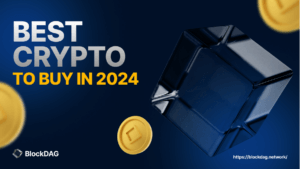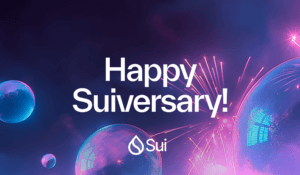Guidance on pre-hedging coming soon, says ASIC Chair Joe Longo after speaking with ESMA
“We know it’s a global issue, so we’ve been engaging with ESMA on its call for evidence in Europe, as well as the FMSB and IOSCO, which is considering work in this area”.

ASIC Chair Joe Longo cited Albert Einstein’s famous quote – ‘setting an example is not the main means of influencing others – it’s the only means” – as he spoke at the ISDA/AFMA Forum.
In his speech, ASIC’s Longo identified important opportunities for intermediaries to take a leadership role as the gatekeepers of the financial industry and encouraged them to take those opportunities, namely in tech, data, and transparency.
“The example has to be set for working with us for greater transparency and better confidence, for integrity and governance, and for risk containment around technology. The example has to be set by you”, he told the audience at the ISDA/AFMA Forum.
Joe Longo added that ASIC is doing its bit as welll and, in the next financial year, ASIC expects to consult on expanding automated order processing rules to futures markets to reflect developments with AI. Moreover, the financial watchdog is planning to update our electronic trading guidance for the same reason.
Besides understanding how AI is being applied and the risks and opportunities attached to those methods of application, ASIC will look at other developments in this space as well, such as crypto tech – digitisation of assets, carbon markets, FX, and lending.
“It’s important that the whole financial market ecosystem works to uplift controls – just as a convoy must go at the pace of its slowest vessel, so too is the financial ecosystem reduced to the strength of its weakest link”, he said.
ASIC, ESMA, FMSB, and IOSCO discuss pre-hedging
With respect to taking the lead in transparency, ASIC’s Joe Longo said it is “one of the three ‘legs’ supporting a robust, confident market with integrity – the other two being fairness and orderliness. Market transparency includes transparency to ASIC via over-the-counter (OTC) derivative transaction reporting – a critically important element in identifying risk build ups in the financial system and what each firm’s exposures are”.
The new ASIC Derivative transaction reporting rules will commence in October next year, and the third round of consultation will be done in the second half of this year. The regulator’s chief said he wants to hear about concerns or issues that arise in firms or in the markets. “This is not empty rhetoric, but a genuine and sincere call for further communication on a deeper level. Being more proactive leads to better and more timely outcomes for everyone involved.”
ASIC’s Chair also mentioned pre-hedging and promised they will provide guidance soon. “We know it’s a global issue, so we’ve been engaging with ESMA on its call for evidence in Europe, as well as the FMSB and IOSCO, which is considering work in this area”.
The dangers of FOMO when it comes to AI
As to technology, ASIC’s Chair talked about AI, which is expected to continue to drive efficiencies in risk management and operations, such as price prediction, hedging, fraud detection, and so on. He noted the different approaches from the EU, UK, China, and Canada, as well as Australia’s consultation paper.
“These are very important questions – some would say existential. They are as yet unanswered. But there is another, very practical, issue concerning explainability with some forms of AI. Put simply, if you can’t explain how a particular system works – and it seems that this is the case with some complex AI systems – how can you justify using it? As early as 1960 Prof Norbert Wiener, one of the architects of cybernetics, observed that ‘If we use, to achieve our purposes, a mechanical agency with whose operation we cannot interfere effectively… we had better be quite sure that the purpose put into the machine is the purpose we really desire.’
“To be clear, my and ASIC’s interest is – and will always be – the safety and integrity of the financial ecosystem. As with any new technology, to the extent that AI affects that ecosystem, to that extent we will be involved. As we realise the potential of tech, we have to do all we can to avoid negative disruption, learned market abuse, misinformation, discrimination, and bias – whether intended or unintended. I want to take this opportunity, as an aside, to emphasise that ASIC has AI as a high and important priority. Not just in regards to wholesale markets, but also its role in – and for – the whole economy, including consumers and small business.”
“But what I want to talk more about here is the danger that the fear of being ‘left behind’ will drive some uses of tech that have unintended consequences. There is a very real danger here that entities may rush too quickly into innovations without applying appropriate controls and proper governance. The recent cyberattack on service provider ION is a good reminder of just how interconnected global markets are, and the implications a bad actor can indirectly have on market intermediaries – and the markets themselves. With this in mind, entities need to focus on robust governance and operational resilience measures. This is nothing new – just because the technology has changed nobody should think that means your existing obligations around good governance have changed with it. They haven’t. But it’s all too easy to forget this in the face of such rapid and unprecedented change. Easy – and dangerous. As Professor Stuart Russell, of UC Berkeley, recently put it, ‘You should not deploy systems whose internal principles of operation you don’t understand, that may or may not have their own internal goals that they are pursuing and that you claim show “sparks of [artificial general intelligence]”.’
“There is space here for you as the gatekeepers to set the pace. To set the example by considering the different forms of explainability tools that are available and their implications. By ensuring that every use of AI within your organisation is understood and the reason a particular decision, recommendation or prediction is made can be explained. Of course, we can’t forget information security. This is especially important for building confidence for investors and consumers, alongside strengthening integrity.”









